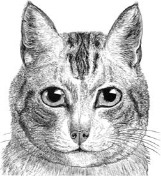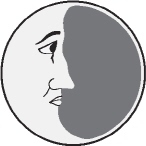Weird But True (12 page)
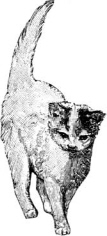
C
hurchill owned a cat named Mr. Cat.
* * *
He also owned an orange cat named Jock, given to him by his private secretary Sir John “Jock” Colville. Churchill's former home at Chartwellânow a historic siteâalways has an orange cat named Jock living there.
C
at urine, like dog urine and human urine, contains phosphorous, which causes it to glow greenish yellow when it's exposed to ultraviolet light.
T
he average person produces more than 10,000 gallons of urine and flushes the toilet 140,000 times in a lifetime.
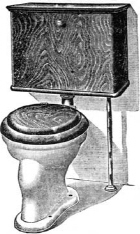
S
crabble players know that there are seventeen three-letter words that end with u on the Official Word List (OWL2) approved by the National Scrabble Association for tournament play in the United States. Among them is “ulu”âa type of knife used by Eskimo women to clean and skin fish, and the only three-letter word on the list that contains two
u
's.
A
s of 2006 when the revised Official Word List was issued, there are 101 two-letter words accepted in Scrabble tournament play in the United States. They range from “aa”âa type of lavaâto “za”âa nickname for pizza.
T
he chemical symbol for the element potassium is K. It comes from the Latin word
kalium
, which comes from
qali
, the Arabic word meaning “ashes.”
* * *
It might seem logical that the chemical symbol for potassium would be P, but by the time potassium was discovered in 1807, there already was a P in the periodic table. P stands for phosphorus, which was discovered in 1669.
T
hese chemists who isolate new chemical elements just don't think ahead! By the time krypton was discovered in 1898 by Scottish chemist Sir William Ramsay and English chemist Morris M. Travers, “K” was already spoken for by potassium on the periodic table. So, the chemical symbol for krypton is Kr.
* * *
The name krypton comes from the Greek word
kryptos
, which means “hidden.”
A
round the time that the world was marking the fortieth anniversary of the discovery of krypton, the world's greatest superhero was about to make his comic book debut. The first appearance of Superman was in
Action Comics #1
, which was released in June 1938.
Superman, so the story goes, came to Earth from the planet Krypton. It's not clear why Superman creators Jerry Siegel and Joe Shuster chose to name the Man of Steel's home planet after an odorless, colorless gas.
I
n Superman comics, one of the few things that can defeat our hero is a strange metal called kryptonite that comes from the planet Krypton. Although the gas krypton exists, kryptonite does not.
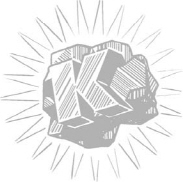
J
erry Siegel and Joe Shuster, who created, wrote, and drew the original Superman, sold their rights to the character to DC Comics for $130 in 1938. Several years later, after the company had reaped millions from the Superman franchise, Siegel and Shuster tried to claim a share of the profits. Instead they were fired.
It took until 2009 for the Siegel and Shuster families to win a court case allowing them to reclaim their rights to Superman.
K
2, the second-highest mountain on Earth after Mount Everest, was named by Thomas Montgomerie in a geological survey he did in 1856. He called it K2 because it was the second peak he charted in the Karakoram mountain range of Pakistan, India, and China. (“K” for “Karakoram”; “2” representing the second peak.) When it was discovered that the local people had no particular name for the enormous yet remote mountain, the name K2 stuck.
A
lthough K2 is not as high as Mount Everest, it's more treacherous. As of June 2008, Everest had 3,684 ascents and 210 fatalities in its history. K2 had 284 ascents and 66 fatalities.
* * *
Annapurna I is the most dangerous of the mountains known as “8000ers” (so named because they're higher than 8,000 meters [26,246.72 feet]). As of June 2008, 153 people had tried an ascent and 58 had perished in the attempt. Annapurna I, which is located in Nepal, is the tenth-highest mountain on Earth.
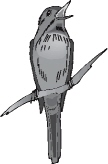
T
he Felsenputzer is a group of volunteer mountaineers who clean bird droppings from the mountainsides in Switzerland.
S
ome mountain climbers set a goal of climbing the highest peaks on each continent. These peaks are referred to as the Seven Summits, although there are eight if you count both Carstensz Pyramid in Papua New Guinea and Mount Kosciuszko in Australia.
* * *
Erik Weihenmayer, who lost his eyesight at the age of thirteen, is the only blind person to have climbed all eight of the Seven Summits.
M
ost great mountain ranges were formed by the shifting of tectonic plates beneath the Earth's surface. These shifts can also cause earthquakes. Figuring that what goes up eventually comes down, some geologists believe that tectonic shifts are now causing the Apennines mountain chain in Italy to collapse.
T
hanks to Global Positioning System (GPS) technology, geophysicists were able to determine that the entire city of Concepción, Chile, moved ten feet west in the February 2010 earthquake there. The same quake shifted Buenos Aires, Argentinaâwhich is about 822 miles from Concepciónâone inch to the west. And. . .
T
hat 8.8 magnitude earthquake shifted our planet on its axis by three inches, and shortened our days by about 1.26 milliseconds.
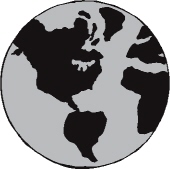
E
ven though radio waves travel at the speed of light, a cell phone call from Earth to Mars would have a four- to twenty-minute time delay depending on how far the planets are from each other in their orbits at the time. A call from Earth to Jupiter would have a thirty-five- to fifty-two-minute delay.
O
n Earth, there are an estimated 6,909 living languages, meaning ones used as the primary language of conversation in a community and taught to babies when they're learning to speak. (Sorry
Star Trek
fans: Klingon doesn't count.)
